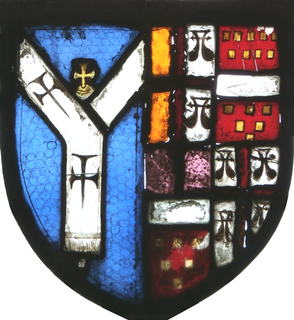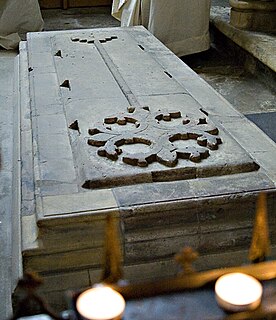Thomas of York may refer to:
- Thomas of Bayeux (d. 1100), aka Thomas I of York, Archbishop of York
- Thomas II of York (d. 1114), Archbishop of York, nephew of Thomas I. Sometimes called "Thomas the Younger"
- Thomas of York (Franciscan), 13th-century theologian and philosopher

Thomas of Bayeux was Archbishop of York from 1070 until 1100. He was educated at Liège and became a royal chaplain to Duke William of Normandy, who later became King William I of England. After the Norman Conquest, the king nominated Thomas to succeed Ealdred as Archbishop of York. After Thomas' election, Lanfranc, Archbishop of Canterbury, demanded an oath from Thomas to obey him and any future Archbishops of Canterbury; this was part of Lanfranc's claim that Canterbury was the primary bishopric, and its holder the head of the English Church. Thomas countered that York had never made such an oath. As a result, Lanfranc refused to consecrate him. The King eventually persuaded Thomas to submit, but Thomas and Lanfranc continued to clash over ecclesiastical issues, including the primacy of Canterbury, which dioceses belonged to the province of York, and the question of how York's obedience to Canterbury would be expressed.
Thomas II was a medieval archbishop of York.
Thomas of York was an English Franciscan theologian and scholastic philosopher of the thirteenth century. He was associated with the Oxford Franciscan school.
| This disambiguation page lists articles about people with the same name. If an internal link led you here, you may wish to change the link to point directly to the intended article. |






